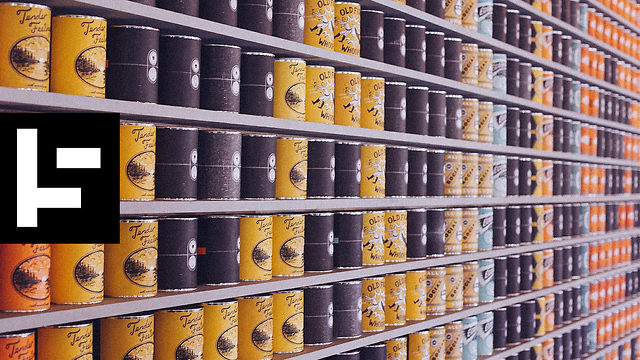Premium Only Content

We Spill The Beans On This 200-Year-Old History Of Canned Food
The next time you're cracking open your favorite canned dinner staple, give Napoleon Bonaparte a little thank you and praise.
Everybody knows that you are not you when you are hungry! Before Snickers was invented there was Napoleon Bonaparte, and maybe he didn’t conquer Europe, but he played a part in conquering the world. One pantry at a time!
Napoleon wondered how he could keep food from spoiling on long military campaigns. He put up a prize of 12,000 francs to whoever could figure it out. This was the moment Nicolas Appert was waiting for.
A Parisian chef Appert was already working on his own method for preserving food. He believed food spoilage was caused by exposure to air. Meat was often preserved for a short time by covering it in a layer of fat. Upon further experimentation, Appert discovered that heat would prevent spoilage.
He began stealing food in glass jars and boiling them. Nearly 50 years later, Louis Pasteur used a similar technique to develop pasteurization. Appert’s method worked and he won the 12,000 franc prize. However, the process still needed to be perfected!
In 1812, tin replaced glass and the first canning factory was built in England.
With this, canned foods filtered into urban life. They became popular among the working class as foods that saved time and money. Canned food gave low income families a wide variety of nutritious options. Cans also played a role in the emancipation of women, halving the time it took to prepare meals.
200 years later, canned food still serves an important purpose. Whether it is war, culture or convenience, the legacy of canned food is sealed!
-
 2:46
2:46
The Benelli Prepper
4 years agoPressured Canned Soup Beans
94 -
 0:18
0:18
EntertainmentVideos
4 years agoHistory
665 -
 0:44
0:44
KMGH
4 years agoHistory Colorado offering a history quest outside
471 -
 3:30
3:30
pattyfweber
4 years agoVote for History
269 -
 5:55
5:55
Pozzy
4 years agoNatural history museum
296 -
 0:14
0:14
KikayMia
4 years agoCooking Garlic Beans
37 -
 11:40
11:40
Stop Political correctness,,,,,,,,,,,,,,,,,,,,,, by malcolmbelfast
4 years ago $0.17 earnedHistory of executive orders
5931 -
 3:06
3:06
WXYZ
4 years agoMarian golfer makes history
515 -
 22:07
22:07
Jasmin Laine
16 hours ago'You Think This Is NORMAL?!'—U.S. Official STUNS CTV With BRUTAL Mic Drop
4.57K29 -
 LIVE
LIVE
BEK TV
22 hours agoTrent Loos in the Morning - 7/31/2025
289 watching